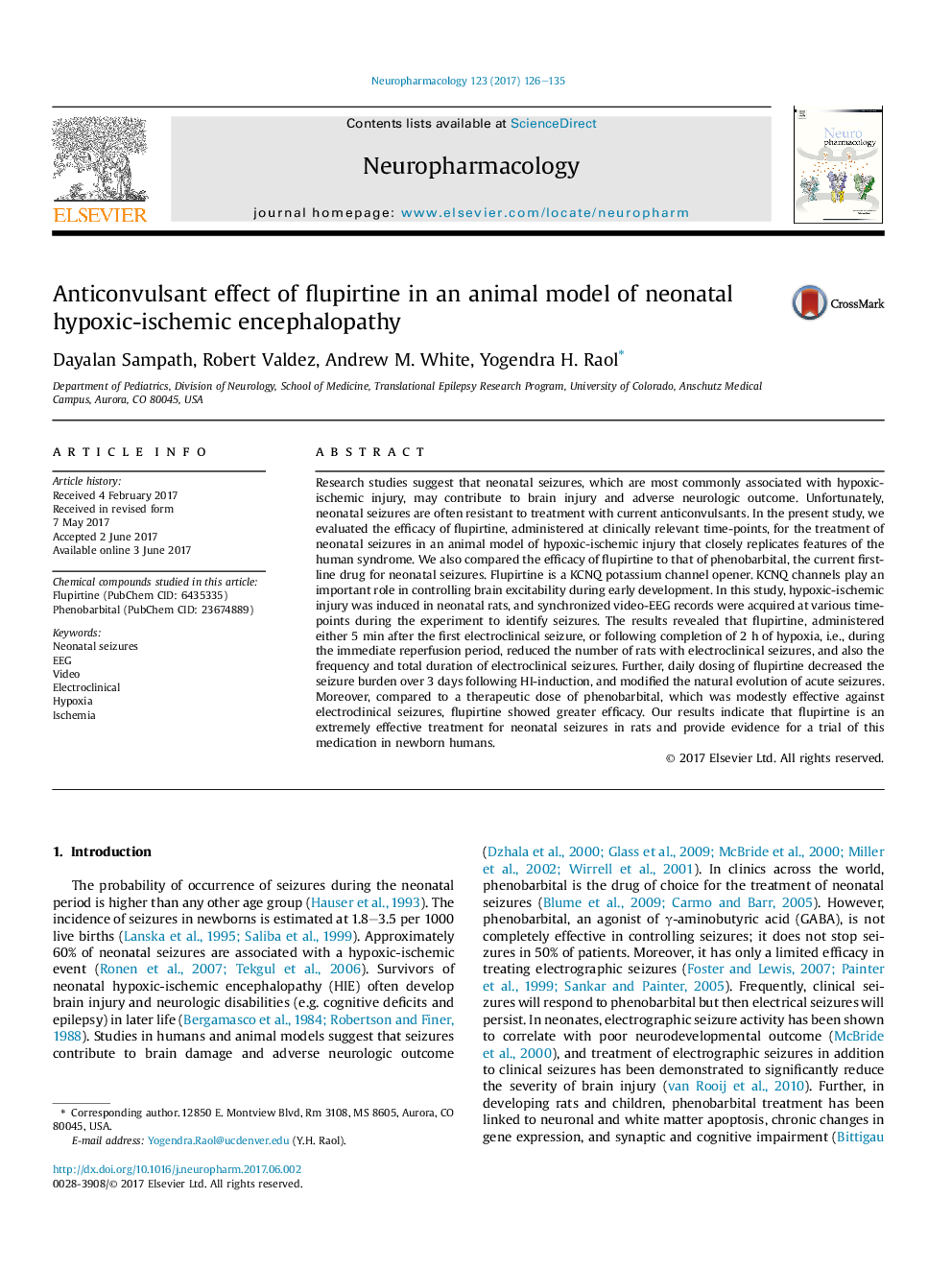| Article ID | Journal | Published Year | Pages | File Type |
|---|---|---|---|---|
| 5548764 | Neuropharmacology | 2017 | 10 Pages |
â¢Examined efficacy of flupirtine against hypoxia-ischemia-induced neonatal seizures.â¢Flupirtine given at clinically relevant time-points dramatically reduces seizures.â¢Repeated flupirtine treatment reduces seizure burden in the acute phase of injury.â¢Flupirtine modifies the natural evolution of acute seizures.â¢Flupirtine shows greater efficacy than the therapeutic dose of phenobarbital.
Research studies suggest that neonatal seizures, which are most commonly associated with hypoxic-ischemic injury, may contribute to brain injury and adverse neurologic outcome. Unfortunately, neonatal seizures are often resistant to treatment with current anticonvulsants. In the present study, we evaluated the efficacy of flupirtine, administered at clinically relevant time-points, for the treatment of neonatal seizures in an animal model of hypoxic-ischemic injury that closely replicates features of the human syndrome. We also compared the efficacy of flupirtine to that of phenobarbital, the current first-line drug for neonatal seizures. Flupirtine is a KCNQ potassium channel opener. KCNQ channels play an important role in controlling brain excitability during early development. In this study, hypoxic-ischemic injury was induced in neonatal rats, and synchronized video-EEG records were acquired at various time-points during the experiment to identify seizures. The results revealed that flupirtine, administered either 5Â min after the first electroclinical seizure, or following completion of 2Â h of hypoxia, i.e., during the immediate reperfusion period, reduced the number of rats with electroclinical seizures, and also the frequency and total duration of electroclinical seizures. Further, daily dosing of flupirtine decreased the seizure burden over 3 days following HI-induction, and modified the natural evolution of acute seizures. Moreover, compared to a therapeutic dose of phenobarbital, which was modestly effective against electroclinical seizures, flupirtine showed greater efficacy. Our results indicate that flupirtine is an extremely effective treatment for neonatal seizures in rats and provide evidence for a trial of this medication in newborn humans.
